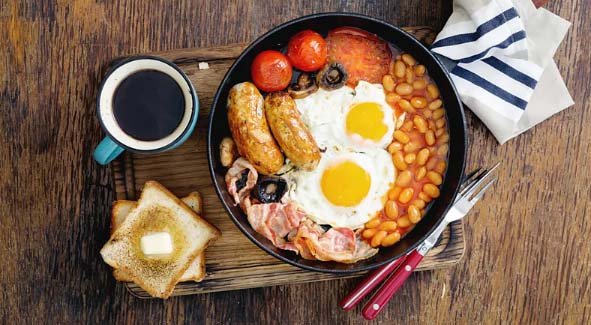
We’ve all heard that the advice about having a good breakfast can set us up for the day. But does that mean this meal can makes us healthier and thinner – or is it something else?
Along with old classics like “carrots give you night vision” and “Santa doesn’t bring toys to misbehaving children”, one of the most well-worn phrases in the arsenal of tired parents everywhere is that breakfast is the most important meal of the day. Many of us grow up believing that skipping breakfast is a dietary travesty, but the number of us who take time to eat it can vary.
Around three-quarters of Americans regularly eat breakfast, while in the UK, around 94% of adults and just 77% of adolescents will regularly eat breakfast. A study in Switzerland showed only two thirds of adults there regularly consume the meal.
When pressed for time, the morning breakfast is often the first thing to go. How many of us eat it while on the run, or gladly exchange a a bowl of cereal, a couple of slices of toast or a pastry for a few extra minutes in bed?
Yet, the clue for why breakfast is supposed to be important is in its name: we’re advised to eat it to break our overnight fast.
“The body uses a lot of energy stores for growth and repair through the night,” explains dietician Sarah Elder. “Eating a balanced breakfast helps to up our energy, as well as protein and calcium used throughout the night.”
But there’s widespread disagreement over whether breakfast should be deemed so important. As well as the rising popularity of fasting diets, there have been concerns around the sugar content of cereal and the food industry’s involvement in pro-breakfast research – and even one claim from an academic that breakfast is “dangerous”.
So what’s the reality? Is breakfast a necessary start to the day… or a marketing ploy by cereal companies?
You might also like:
• Is sugar really bad for you?
• We don’t need nearly as much protein as we consume
• The truth about eating eggs
 Weekly Bangla Mirror | Bangla Mirror, Bangladeshi news in UK, bangla mirror news
Weekly Bangla Mirror | Bangla Mirror, Bangladeshi news in UK, bangla mirror news







